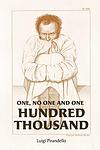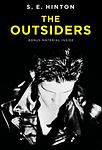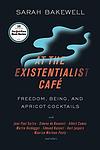The Greatest Italian, British "Existentialist" Books of All Time
Click to learn how this list is calculated.
This list represents a comprehensive and trusted collection of the greatest books. Developed through a specialized algorithm, it brings together 300 'best of' book lists to form a definitive guide to the world's most acclaimed books. For those interested in how these books are chosen, additional details can be found on the rankings page.
Genres
Existentialist literature is a genre that explores the meaning and purpose of human existence, often through the lens of individual experience and subjective perception. These books often delve into themes of freedom, choice, and responsibility, and may challenge traditional notions of morality and societal norms. Existentialist literature can be introspective and philosophical, and may offer readers a unique perspective on the human condition and the search for meaning in a complex and often chaotic world.
Countries
Date Range
Reading Statistics
Click the button below to see how many of these books you've read!
Download
If you're interested in downloading this list as a CSV file for use in a spreadsheet application, you can easily do so by clicking the button below. Please note that to ensure a manageable file size and faster download, the CSV will include details for only the first 500 books.
Download-
1. Under the Volcano by Malcolm Lowry
Set in Mexico on the Day of the Dead in 1938, the novel follows the last day in the life of Geoffrey Firmin, a British consul with a severe alcohol addiction. Through his interactions with his estranged wife and half-brother, the book explores themes of despair, betrayal, and the destructive power of addiction, against the backdrop of political and social unrest. The impending eruption of the nearby volcano serves as a metaphor for Firmin's deteriorating mental state and the looming world war.
-
2. Six Characters in Search of an Author by Luigi Pirandello
In this metatheatrical play, six characters come to life and demand that a theater director tell their tragic story, which was left incomplete by their author. As the director and his actors interact with these characters, the boundaries between fiction and reality blur, leading to a philosophical exploration of the nature of human identity, the reliability of art, and the unreliability of perception. The characters' story, involving a complex web of familial relationships, adultery, and suicide, further complicates the narrative, challenging the audience's understanding of truth and illusion.
-
3. Complete Poems of Giacomo Leopardi by Giacomo Leopardi
This book is a comprehensive collection of the poetic works of a renowned Italian poet. The poems cover a wide range of themes, from love and nature to philosophy and social issues, showcasing the poet's profound understanding of human nature and the world. The collection also includes his celebrated "Canti" and other lesser-known works, all presented in their original Italian language, making it a valuable resource for those interested in Italian literature and culture.
-
4. One, No One and One Hundred Thousand by Luigi Pirandello
The book tells the story of a man who has his identity shattered when his wife casually notes that his nose tilts to the right, something he had never noticed before. This seemingly insignificant comment leads him into an obsessive quest to understand how he is perceived by others, and he gradually loses his sense of self as he fragments into a multitude of characters. The protagonist's existential crisis intensifies as he realizes that everyone he meets perceives him differently, leading him to question his own existence and ultimately, his sanity.
-
5. The Atrocity Exhibition by J. G. Ballard
This book is a collection of interconnected stories that explore the effects of media and technology on modern psychology and human behavior. The narrative centers around a psychiatrist who, after a mental breakdown, becomes fixated on the idea that there is a deeper, more abstract reality beneath the surface of everyday life. He obsessively analyzes cultural events, car crashes, and sexual encounters as he attempts to deconstruct the world into a series of conceptual, almost fetishized images. The work challenges the boundaries between sanity and madness, reality and simulation, in a fragmented, non-linear style that mirrors the disjointed nature of the protagonist's psyche and the chaotic society he is attempting to dissect.
-
6. The Outsider by Colin Wilson
"The Outsider" is a seminal work of existentialist thought that explores the psyche of individuals who stand on the fringes of society, those who feel a profound sense of alienation and disconnection from the world around them. The book delves into the lives and works of various historical figures, including artists, writers, and philosophers, to examine the role of the outsider in shaping human consciousness and culture. It discusses the outsider's struggle with self-identity and the search for meaning in an indifferent universe, ultimately seeking to understand the potential for transcendence and the ways in which these individuals can reconcile their existential angst with the demands of everyday life.
-
7. The Divided Self by R.D. Laing
"The Divided Self" explores the nature of human identity and the fragile line between sanity and madness. The book delves into the inner lives of individuals diagnosed with schizophrenia, arguing that their experiences are profoundly misunderstood by conventional psychiatry. The author presents a compelling case that these individuals are not inherently disordered but are instead struggling to maintain a coherent self in a world that often rejects their unique perceptions and realities. Through vivid case studies and philosophical inquiry, the book challenges the reader to reconsider the nature of mental illness and the societal norms that define it.
-
8. Remainder by Tom McCarthy
After a traumatic accident leaves him with a large settlement and no memory of his past, the protagonist becomes obsessed with reenacting and reconstructing fragments of memories and events that he can't fully remember. He uses his newfound wealth to recreate these scenes in exact detail, hiring actors and building sets, in a desperate attempt to regain a sense of authenticity and reality. As his obsession escalates, the boundary between the recreated experiences and actual reality begins to blur, leading to a shocking climax.
-
9. Straw Dogs by John Gray
"Straw Dogs" is a philosophical critique of modern humanism and the belief in human progress. The book challenges the commonly held views that humans are fundamentally different from other animals and that they can shape the world according to their will. Drawing on an eclectic mix of Western philosophy, Eastern mysticism, and scientific knowledge, the author argues that human life is no more significant than that of straw dogs, which were used as ritual objects in ancient Chinese sacrifices and then discarded. The book presents a radical perspective that calls into question many of the foundational assumptions of Western thought, ultimately suggesting that humans should embrace a more humble, realistic understanding of their place in the world.
-
10. Naked Masks by Luigi Pirandello
"Naked Masks" is a collection of five plays that delve into the complexities of human identity and the conflict between one's inner self and the roles imposed by society. The plays explore themes of madness, illusion, and existential uncertainty, often through characters who are caught in the tension between appearance and reality. The author uses the metaphor of the mask to represent the personas that individuals adopt in public, while questioning the nature of truth and the possibility of truly understanding oneself or others. The plays challenge audiences to consider the fluidity of identity and the performative aspects of everyday life.
-
11. At The Existentialist Café: Freedom, Being, And Apricot Cocktails by Sarah Bakewell
"At The Existentialist Café" is a non-fiction book that explores the lives and ideas of a group of philosophers known as the existentialists. The book takes readers on a journey through the cafes of Paris in the 1930s and 40s, where philosophers such as Jean-Paul Sartre, Simone de Beauvoir, and Maurice Merleau-Ponty would gather to discuss their ideas about freedom, being, and the meaning of life. Bakewell weaves together their personal stories, philosophical theories, and the historical context in which they lived, to create a compelling and accessible introduction to existentialism.
Reading Statistics
Click the button below to see how many of these books you've read!
Download
If you're interested in downloading this list as a CSV file for use in a spreadsheet application, you can easily do so by clicking the button below. Please note that to ensure a manageable file size and faster download, the CSV will include details for only the first 500 books.
Download









